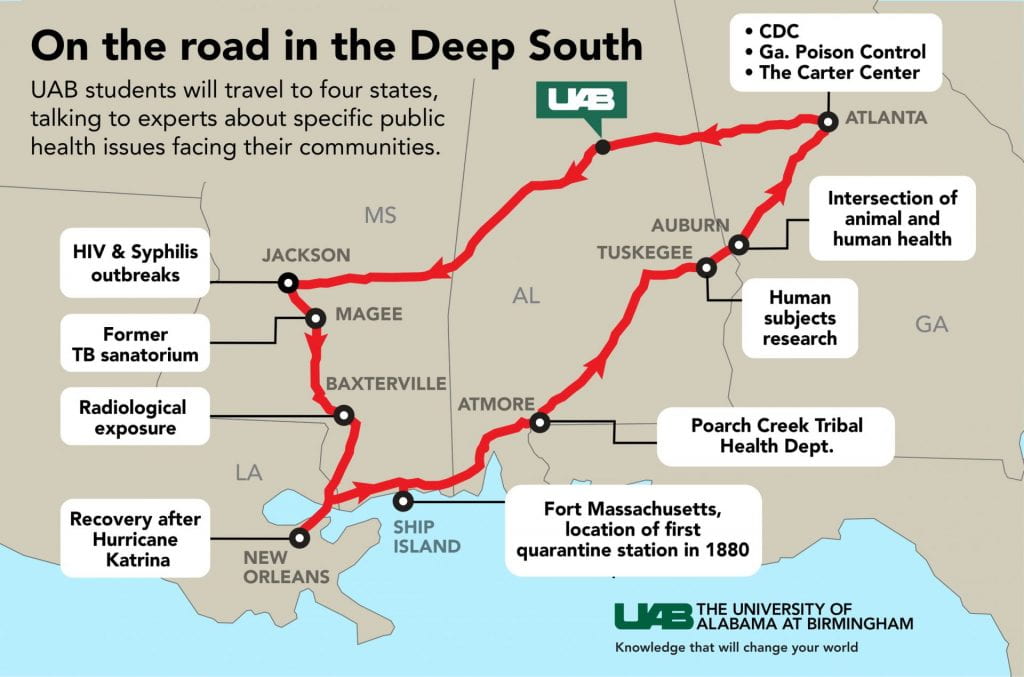Fifteen students will travel from Birmingham to Mississippi, Louisiana and Georgia to study population health and how social determinants of health and inequities are affecting health outcomes. The trip is led by Lisa McCormick, DrPH, associate dean for Public Health Practice and associate professor of environmental health science in the School of Public Health and Ms. Meena Nabavi, MPH, program manager for the Office of Public Health Practice.
A nuclear test site, a tuberculosis sanitarium, and a quarantine station designated in the late 1800’s are just a few of the stops students will make on a two-week long journey that looks at both historical and contemporary public health issues across the deep south. Students will explore issues around poverty, pollution, infectious disease outbreaks and biosafety, chronic diseases, natural disasters and mass casualty disaster response. Officials from local, state, tribal and federal public health agencies will meet with students to discuss programs and infrastructure in place to advance health equity and address the social determinants of health impacting the populations they serve.
The sum of this experience will illustrate the interdisciplinary nature of public health practice and introduce students to the value of working in rural, medically underserved communities and/or on behalf of medically underserved populations.
The sites we will be visiting include Baxterville, Mississippi (population 7,343), where nuclear weapons were tested in 1964 and 1966 as part of a governmental project at the Salmon Test Site, Ft. Massachusetts on Ship Island, Mississippi, where one of the nation’s first quarantine stations was located, the lower ninth ward in New Orleans where effects from Hurricane Katrina can still be seen today, Tuskegee, Alabama to learn about the legacy of the Tuskegee Syphilis Study, and the Carter Center in Atlanta to learn about President Carter’s initiative to eradicate Guinea Worm across the world.
Students will also visit the Mississippi State Department of Health, the New Orleans Health Department, the Poarch Band of Creek Indians Tribal Health Department, the Southwest District of the Alabama Department of Public Health, and the Centers for Disease Control and Prevention. The Alabama Department of Agriculture and Industries will open the doors of the Thompson Bishop Sparks State Diagnostic Laboratory in Auburn, AL to teach students about the surveillance and monitoring of animal populations. Auburn University School of Veterinary Medicine will meet with students to discuss the intersection of human and animal medicine.
The students will leave Birmingham on May 13th and return on May 25th and will be blogging every day! So make sure you bookmark our blog and follow our adventures daily!

